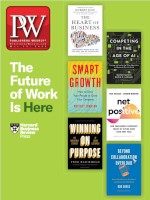In Until Proven Safe (MCD, July.), Manaugh and Twilley survey the past, present, and future of quarantine.
How did this book originate?
Manaugh: We were in Sydney back in 2009. We had just met up with a friend near a hotel originally designed as a quarantine station. Having noticed that so many former quarantine facilities were now abandoned, torn down, or converted into hotels and museums, our initial thought—ironically—was: What was quarantine? Why do people no longer seem to do it? Quarantine, we thought, was something lost to history. Of course, as soon as we began our research, we realized that it never disappeared; we just changed when and where it occurs.
How would the book differ had it been completed before Covid-19?
Twilley: The biggest change was probably the newfound urgency. Even some of the public health experts we interviewed in 2016 and 2017 were surprised that we were writing something other than a historical survey—they seemed sure that mass quarantines were a thing of the past. But it was clear to us from quite early on that quarantine was not only still important, it also needed to be reformed, redesigned, and relegislated. Covid-19 made it all the more obvious that the time for rethinking quarantine is now.
What surprised you the most during your research?
Manaugh: The sheer ubiquity of quarantine in world affairs and recent history. It was everywhere. This is from the completely frivolous—Johnny Depp’s dogs were nearly put down by Australian authorities due to a quarantine violation—to the existential, with NASA’s Planetary Protection Officer telling us about the lack of a coordinated international response to astronaut quarantine, in case a traveler ever comes back from space with an unknown illness. Cocoa plants are quarantined to protect the world’s chocolate supply; even the origin of the modern passport can be traced back to health papers.
What is the most valuable lesson that can be learned from the Covid-19 quarantines?
Twilley: One thing we saw again and again in the pandemic simulations we attended was that quarantine was thought of as a medical countermeasure, rather than as a lived experience. In these role-playing exercises, authorities invoked quarantine, assumed it would work to “flatten the curve,” and then moved on. But, as we’ve seen during Covid-19, people can’t quarantine if they can’t afford to, or don’t have anywhere to go—and quarantine is hard if no one has thought through how to make it feel meaningful and connected rather than isolating and boring. We need to actually design quarantine.



 Volume 268
Issue 19
05/10/2021
Volume 268
Issue 19
05/10/2021





